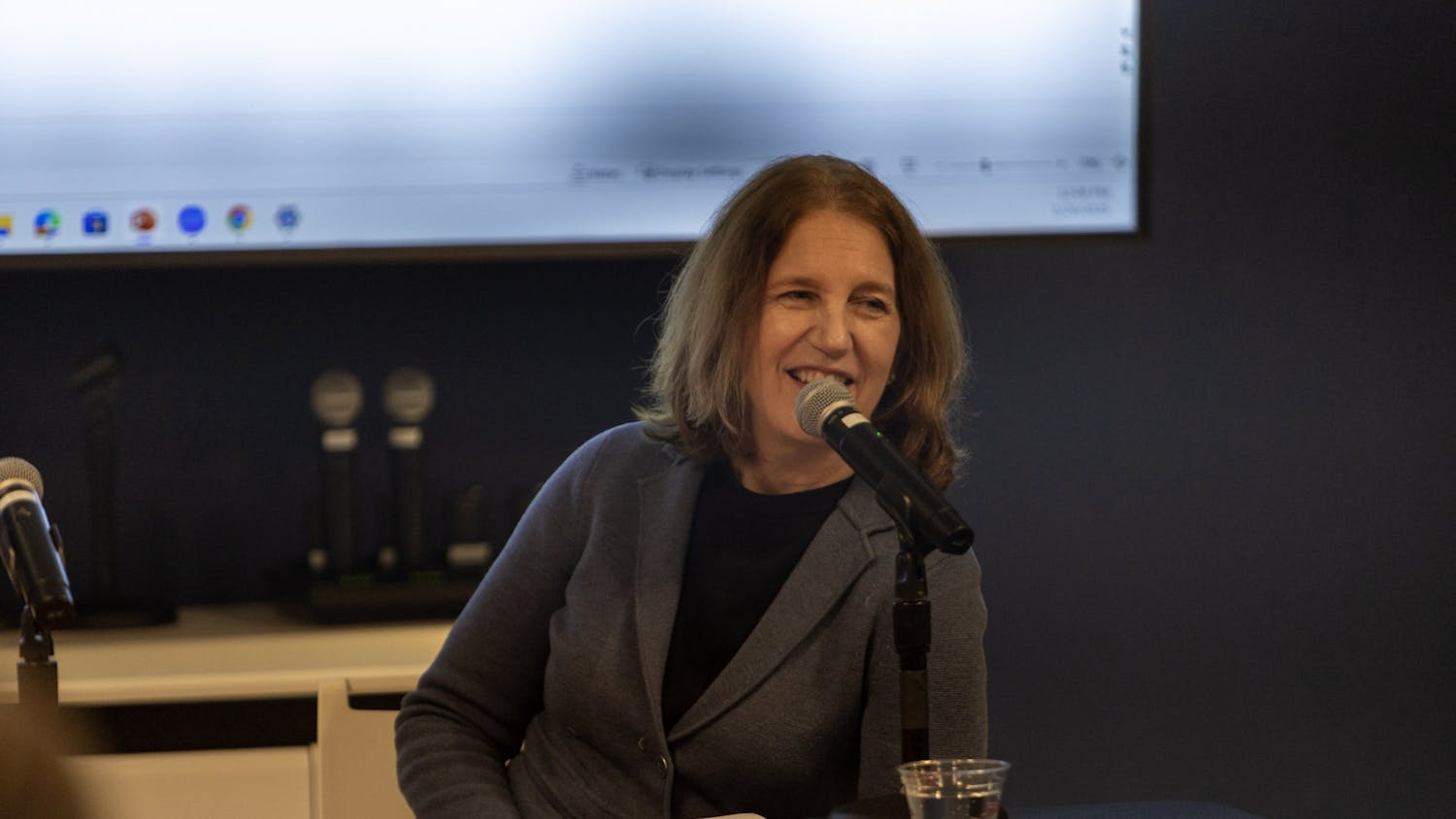Coca-Cola workers face assassination and exile if they try to stand up for their rights said Luis Cardona, a Coca-Cola employee exiled from Colombia, when he spoke to anthropology students as part of his campaign to "stop killer Coke" Tuesday.
"Coca-Cola does not respect its workers, laborers or environment," said
Cardona, who worked in a Coca-Cola bottling plant for more than 12 years until he was exiled to the United States in 1996.
"Over the last 10 years, Coca-Cola has killed eight to 10 workers in Colombia.
Five of them were assassinated where I used to work. We have three missing, and three exiled, and I am one of them," he said.
Many families were displaced because they tried to claim their rights as workers, and 65 union members are under threat of assassination, Cardona said.
"The major problem is that the larger management [of Coca-Cola] pays the salaries of the paramilitary who affect us, and who are trained by the government of Colombia," said Cardona. Companies such as Nestle, Chiquita Banana and Coca-Cola "use these tactics to silence workers," he said.
Managers of bottling plants would "go out drinking with the paramilitary. They would threaten us, and say that the paramilitary would shut down the union," Cardona said.
"In Colombia, if you claim rights as a worker, they say you are a criminal, a terrorist or a delinquent."
Several years ago, the paramilitary assassinated a union leader inside a plant, Cardona said. The leader's wife established a lawsuit, but Coca-Cola said it didn't happen inside plant grounds, he said.
"Three years later, the wife was assassinated, leaving two orphan girls, ages eight and seven," Cardona said. "We have to think about the trauma these girls went through, just because their parents claimed right to a better life and education for their children."
Before Cardona was exiled, the paramilitary "forced me to the middle of town. They were looking for a car to take me to the river to assassinate me. It is called the 'killing field,'" he explained.
Cardona managed to escape to a police station. The police escorted him back to his house, when he was told to take two changes of clothes for himself and his wife and children.
"My child, who was 2 years old said, 'please don't take me away from my home,'" he said. "They say that men don't cry. That day I understood all that was false. I cried."
Later that day, the union hall was robbed and burned by a paramilitary group, Cardona said.
In 1998 he tried to establish a union hall on behalf of the indigenous, black, and peasant communities.
"Indians could not work because they were Indian. Black people could not work because they had black skin. Peasants could not work because they were not smart enough; they were brutes. It is not that we are less smart than anybody else, we don't have the means to seek education."
After a series of lawsuits, a worldwide campaign began in universities, high schools, and churches to "raise consciousness" about Coca-Cola products and practices in Colombia, as well as in several other countries, said Cardona.
Coca-Cola "produces obesity, it produces diabetes, and people become addicted to it," he said.
"We want to make sure Coca-Cola understands that what they are doing is wrong," Cardona said.
Coca Cola claimed there are 16 workers' unions, and Cardona only represents one of the unions, according to the department.
"American students respond very well [to the campaign]," Cardona said. "Many universities have kicked Coca-Cola off their campuses. When Coca-Cola spoke to students at DePaul University in Chicago, [Coca Cola] told them I had never worked for them."
According to Cardona, DePaul students formed two parallel lines around the Coca-Cola representatives, and "did not say anything."
"[Coca-Cola says] 'It's not us,'" said International Labor Rights Fund representative Derek Baxter.
In an official statement, Coca-Cola called the Columbia allegations "a publicity stunt ... the allegations are false and it's outrageous to believe that The Coca-Cola Company would have anything to do with this type of behavior," the company stated in April.
Colombia is the worst country to be a union activist where 90-100 activists are killed each year, Baxter said.
As part of a 10 year "exclusive contract" AU has with Coca-Cola, all beverages distributed in TDR or sold on campus are Coca-Cola products. Other schools such as DePaul, Rutgers University and the University of Michigan, among others, are actively protesting against Coca-Cola, according to the "Killer Coke" Web site.
Cardona's lecture was part of the Department of Anthropology's public lecture series.
For more information about the campaign against Coca-Cola, visit
www.killercoke.org.




